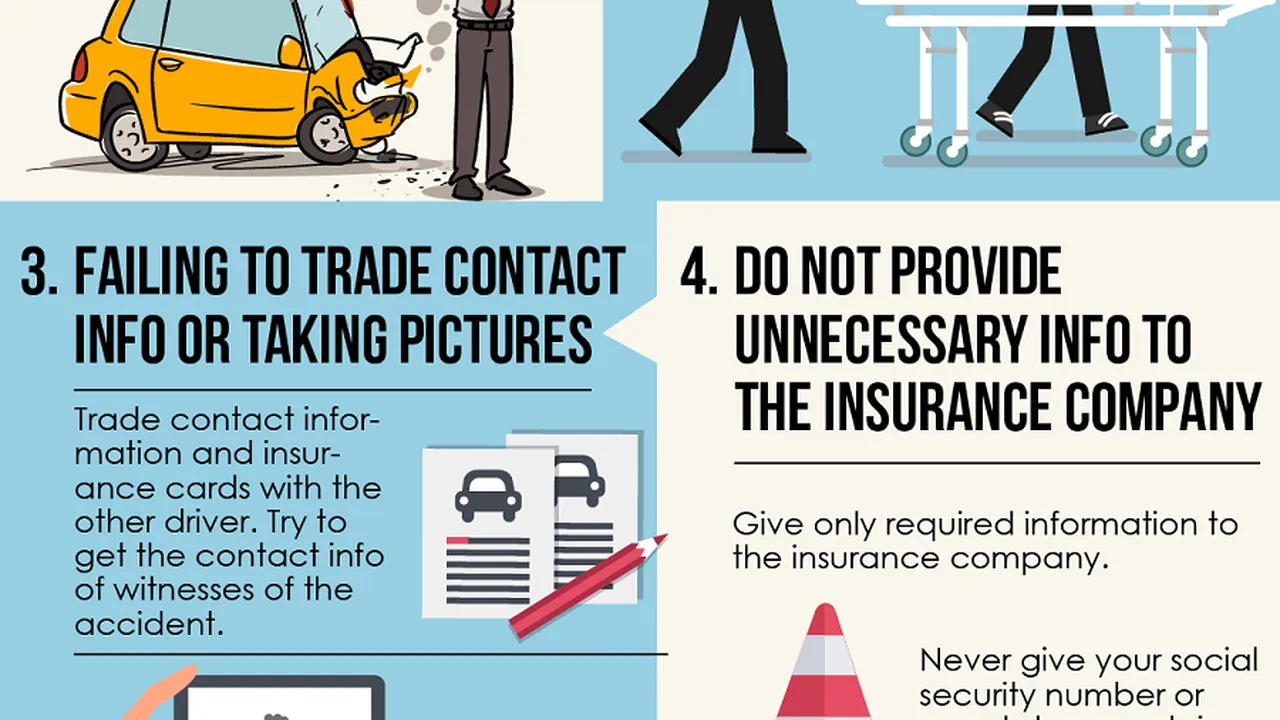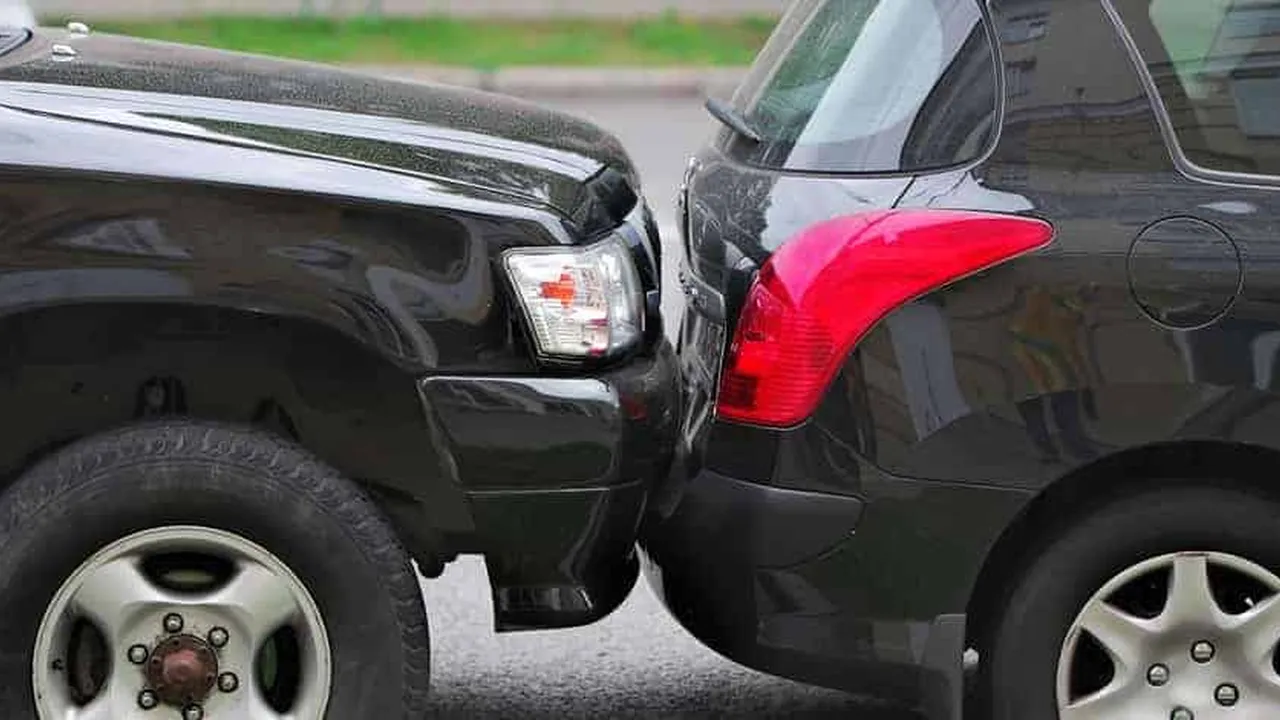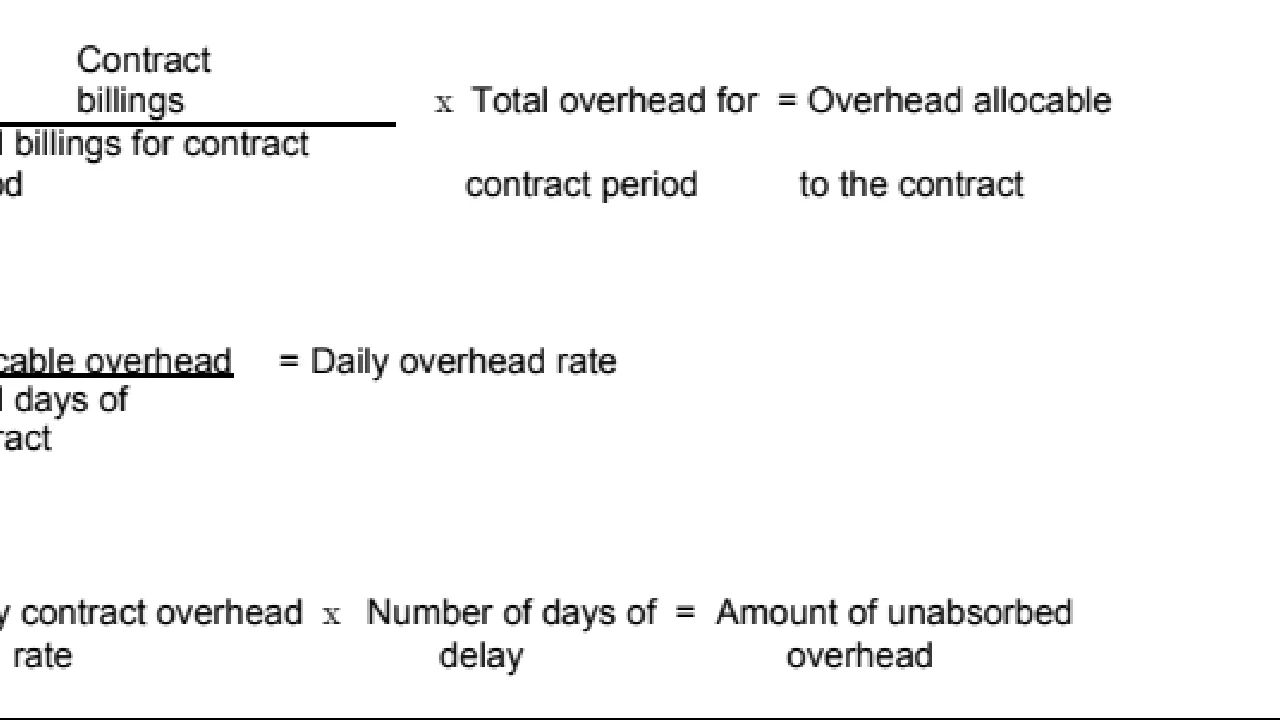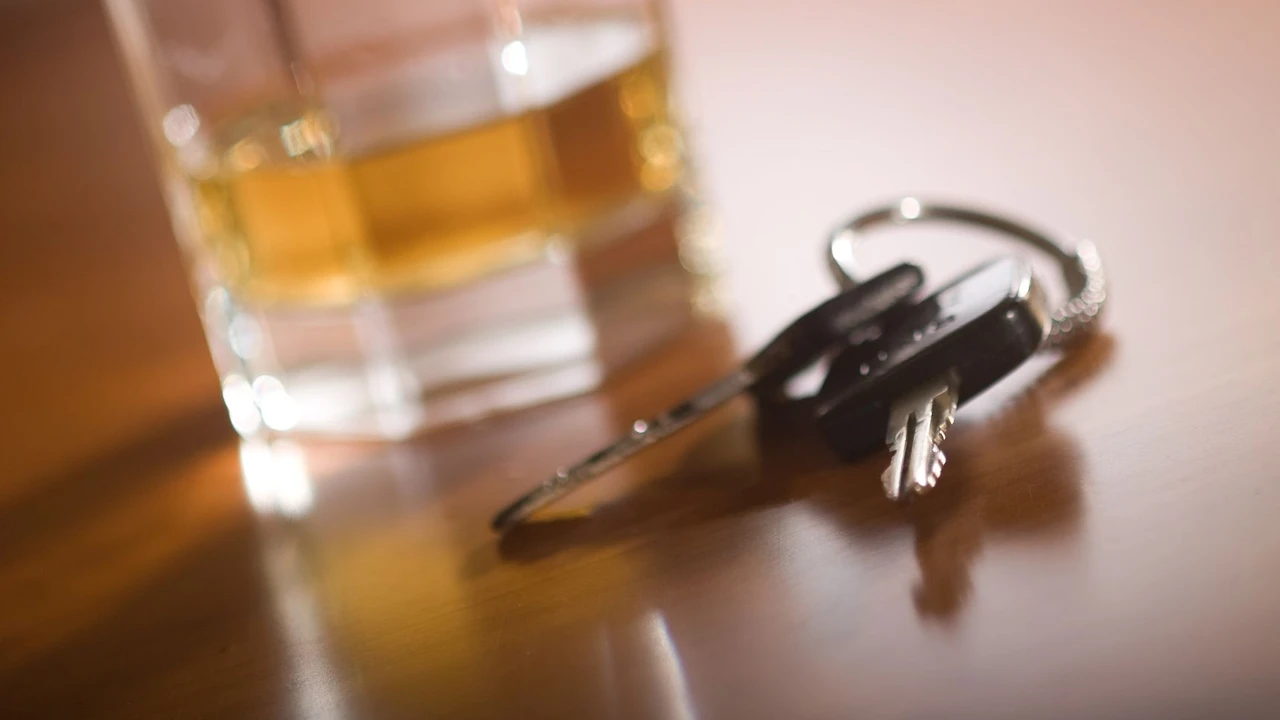7 Mistakes That Can Ruin Your Car Insurance Claim

Introduction: Understanding the Importance of a Solid Car Insurance Claim Strategy
Alright, let's be real. Dealing with car insurance after an accident is about as fun as a root canal. But, hey, it's gotta be done. And doing it right can mean the difference between getting a fair settlement and getting totally ripped off. This isn't just about money; it's about getting your life back on track after a stressful event. We're gonna dive into the common pitfalls people stumble into when filing a car insurance claim and how you can dodge them like a pro. Think of this as your cheat sheet to navigating the insurance maze. We'll cover everything from the initial accident report to negotiating that final settlement. So buckle up, because we're about to get real about car insurance claims.
Mistake 1: Failing to Report the Accident Immediately - Time is of the Essence for Your Car Accident Claim
Okay, picture this: you've just been in a fender bender. You're shaken, maybe a little embarrassed, and you just want to get out of there. Resist the urge! Delaying reporting the accident is a HUGE no-no. Insurance companies are sticklers for timely reporting. The longer you wait, the more suspicious they become. They might think you're trying to hide something or that the damage wasn't actually caused by the accident you're claiming. Reporting the accident immediately establishes a clear timeline and provides a record of the incident when memories are fresh. Even if you think the damage is minor, report it anyway. You never know what hidden damage might pop up later. Plus, in some states, it's legally required to report accidents that meet certain criteria (like causing injury or exceeding a certain dollar amount in damage). Don't risk fines or legal trouble – just report it! Call the police if necessary, especially if there are injuries or significant damage. Get a police report – it's invaluable documentation. Then, contact your insurance company ASAP. Don't wait! Every minute counts.
Mistake 2: Admitting Fault at the Scene - Protecting Your Car Insurance Claim from the Start
This is a biggie. Even if you *think* you're at fault, never, ever admit it at the scene. Emotions are running high, and you might not have a clear picture of what actually happened. Statements you make at the scene can be twisted and used against you later. Instead of saying "I'm sorry, it was my fault," stick to the facts. Describe what happened without assigning blame. "I was driving down the street, and the other car..." That's it. Let the police and insurance companies investigate and determine fault. Remember, even if you feel responsible, there might be contributing factors you're not aware of. Maybe the other driver was speeding, or there was a hidden obstruction. Leave the fault determination to the professionals. Your job is to remain calm, gather information (like the other driver's insurance information and contact details), and report the accident to your insurance company. Keep your opinions to yourself, especially when it comes to fault. Silence is golden in this situation.
Mistake 3: Failing to Document Everything Thoroughly - Building a Strong Case for Your Car Insurance Claim
Documentation is your best friend when it comes to car insurance claims. Think of yourself as a detective, gathering evidence to support your case. This means taking photos and videos of everything: the damage to your car, the other car, the accident scene, any skid marks, traffic signals, and anything else that might be relevant. Get multiple angles and close-ups. Don't just rely on your memory. Memories fade, but photos last. Also, collect all relevant documents, including the police report, medical records (if you were injured), repair estimates, and any communication you have with the insurance company. Keep a detailed log of all your expenses related to the accident, such as medical bills, car rental costs, and lost wages. The more documentation you have, the stronger your claim will be. Organize everything in a folder or binder so you can easily access it when you need it. Consider using a cloud storage service like Google Drive or Dropbox to back up your documents in case something happens to your physical copies. Pro tip: download a car accident documentation app on your phone. These apps provide checklists and templates to help you gather all the necessary information at the scene of the accident.
Mistake 4: Accepting the First Settlement Offer - Knowing Your Worth in a Car Insurance Claim
Insurance companies are businesses, and their goal is to minimize payouts. That's why they often make a low initial settlement offer. Don't be fooled! This is just a starting point. Never accept the first offer without carefully reviewing it and understanding the full extent of your damages. Get multiple repair estimates to ensure the offer adequately covers the cost of repairs. If you were injured, make sure the offer covers all your medical expenses, lost wages, and pain and suffering. Do your research and understand what your claim is worth. Talk to an attorney if you're unsure. An attorney can help you assess the value of your claim and negotiate with the insurance company on your behalf. Remember, you have the right to negotiate. Don't be afraid to counteroffer and fight for what you deserve. Be polite but firm, and always back up your demands with documentation. Knowing your rights and being prepared to negotiate is key to getting a fair settlement.
Mistake 5: Failing to Seek Medical Attention Promptly - Protecting Your Health and Your Car Insurance Claim
Your health is the most important thing. Even if you feel fine after an accident, it's crucial to seek medical attention as soon as possible. Some injuries, like whiplash or concussions, might not be immediately apparent. Waiting too long to see a doctor can make it harder to prove that your injuries were caused by the accident. Plus, it can jeopardize your health. See a doctor, chiropractor, or physical therapist as soon as possible. Follow their treatment recommendations and keep detailed records of all your medical appointments and expenses. Tell your doctor that you were in a car accident and describe your symptoms in detail. This will help them accurately diagnose your injuries and provide the appropriate treatment. Failing to seek medical attention promptly can not only harm your health but also weaken your insurance claim. The insurance company might argue that your injuries were not caused by the accident or that they are not as severe as you claim. Don't give them a reason to deny or reduce your claim. Protect your health and your claim by seeking prompt medical attention.
Mistake 6: Communicating Directly with the Other Driver's Insurance Company - Letting the Professionals Handle the Car Insurance Claim
Once you've filed a claim with your own insurance company, let them handle the communication with the other driver's insurance company. Communicating directly with the other driver's insurance company can be risky. They might try to trick you into saying something that could hurt your claim. They are not on your side. Their goal is to minimize their payout, even if it means denying your claim altogether. Refer all communication to your own insurance company or your attorney. Let them handle the negotiations and protect your interests. If the other driver's insurance company contacts you directly, politely decline to answer their questions and tell them to contact your insurance company or attorney. Don't be intimidated by their tactics. You have the right to remain silent and let the professionals handle the communication. This will protect you from making mistakes that could jeopardize your claim.
Mistake 7: Not Consulting with an Attorney - When to Seek Legal Help for Your Car Insurance Claim
Sometimes, you need a lawyer. If you've been seriously injured in a car accident, if the insurance company is denying your claim, or if you're struggling to negotiate a fair settlement, it's time to consult with an attorney. An attorney can help you understand your rights, assess the value of your claim, and negotiate with the insurance company on your behalf. They can also represent you in court if necessary. Don't be afraid to seek legal help. Many attorneys offer free consultations, so you can get advice without any obligation. Look for an attorney who specializes in car accident cases and has a proven track record of success. An attorney can level the playing field and help you get the compensation you deserve. Don't let the insurance company take advantage of you. If you're feeling overwhelmed or unsure of what to do, consult with an attorney. It could be the best decision you make.
Recommended Products and Their Uses in Car Accident Situations
1. Dash Cam: The Ultimate Witness for Your Car Insurance Claim
A dash cam is like having an unbiased witness in your car. It records everything that happens on the road, providing crucial evidence in case of an accident. This is especially useful when determining fault. For example, if another driver runs a red light and causes an accident, the dash cam footage will clearly show who was at fault. There are many different types of dash cams available, ranging from basic models that record video to more advanced models that include features like GPS tracking, lane departure warning, and collision detection.
Product Recommendations:
- Vantrue N4 3 Channel Dash Cam: This is a top-of-the-line dash cam that records in 4K resolution and has three cameras: one for the front, one for the rear, and one for the interior. It also has GPS tracking, night vision, and parking mode. Price: Around $300. Use Case: Perfect for rideshare drivers or anyone who wants comprehensive coverage.
- Garmin Dash Cam 67W: This is a smaller, more discreet dash cam that records in 1440p resolution and has a wide 180-degree field of view. It also has voice control and automatic incident detection. Price: Around $200. Use Case: Ideal for everyday drivers who want a reliable and easy-to-use dash cam.
- Rexing V1 Basic: An affordable option that still provides good quality 1080p recording. Price: Around $50. Use Case: A great entry-level dash cam for those on a budget.
Comparison:
| Feature | Vantrue N4 | Garmin 67W | Rexing V1 Basic |
|---|---|---|---|
| Resolution | 4K (3 Channels) | 1440p | 1080p |
| GPS Tracking | Yes | Yes | No |
| Night Vision | Yes | Yes | Yes |
| Price (Approx.) | $300 | $200 | $50 |
2. Car Accident Documentation App: Organizing Your Information for a Seamless Car Insurance Claim
These apps provide checklists and templates to help you gather all the necessary information at the scene of the accident. They can guide you through the process of taking photos, collecting witness information, and filling out an accident report. This can save you valuable time and ensure that you don't forget any important details. Many of these apps also allow you to store your insurance information and contact details, making it easy to access them in case of an emergency.
Product Recommendations:
- Car Accident Report App (by iTriage): A free app that provides a step-by-step guide to documenting an accident.
- Auto Accident App (by Diamond Digital): A more comprehensive app with features like GPS location and accident reconstruction tools.
- WreckCheck: Another user-friendly app for documenting accidents and sharing information with your insurance company.
Comparison:
Most of these apps offer similar core functionality (photo capture, information gathering), so the best choice often comes down to personal preference in terms of user interface and specific features. Consider downloading a few free apps and trying them out to see which one you like best.
3. First Aid Kit: Prioritizing Safety After a Car Accident
A well-stocked first aid kit is essential for dealing with minor injuries at the scene of an accident. It should include items like bandages, antiseptic wipes, pain relievers, and gauze pads. Having a first aid kit on hand can help you provide immediate care to yourself or others until medical help arrives. It's also a good idea to include a blanket in your kit to help keep injured individuals warm and comfortable.
Product Recommendations:
- First Aid Only All-Purpose First Aid Kit: A comprehensive kit with a wide range of supplies. Price: Around $20.
- Johnson & Johnson All-Purpose Portable Compact First Aid Kit: A smaller, more portable kit that's perfect for keeping in your glove compartment. Price: Around $15.
- Adventure Medical Kits Road Tripper Medical Kit: A more advanced kit designed for longer trips and more serious injuries. Price: Around $50.
Comparison:
The best first aid kit for you will depend on your needs and budget. Consider the size of your car and the types of injuries you're most likely to encounter. Make sure the kit includes supplies for treating cuts, scrapes, burns, and sprains.
4. Emergency Escape Tool: Breaking Free in a Critical Car Accident Situation
In a serious accident, you might need to quickly escape from your car. An emergency escape tool can help you break a window or cut a seatbelt if you're trapped. These tools typically have a spring-loaded window breaker and a razor-sharp seatbelt cutter. Keep one in your glove compartment or on your keychain for easy access. It's an inexpensive but potentially life-saving device.
Product Recommendations:
- Resqme The Original Keychain Car Escape Tool: A compact and affordable tool that easily attaches to your keychain. Price: Around $10.
- LifeHammer Safety Hammer: A more robust tool with a larger handle for better grip. Price: Around $20.
- Ztylus Stinger Car Charger Emergency Escape Tool: A dual-purpose tool that also functions as a car charger. Price: Around $30.
Comparison:
When choosing an emergency escape tool, look for one that is easy to use, durable, and has both a window breaker and a seatbelt cutter. Practice using the tool before you need it so you'll be familiar with how it works in an emergency.
:max_bytes(150000):strip_icc()/277019-baked-pork-chops-with-cream-of-mushroom-soup-DDMFS-beauty-4x3-BG-7505-5762b731cf30447d9cbbbbbf387beafa.jpg)






